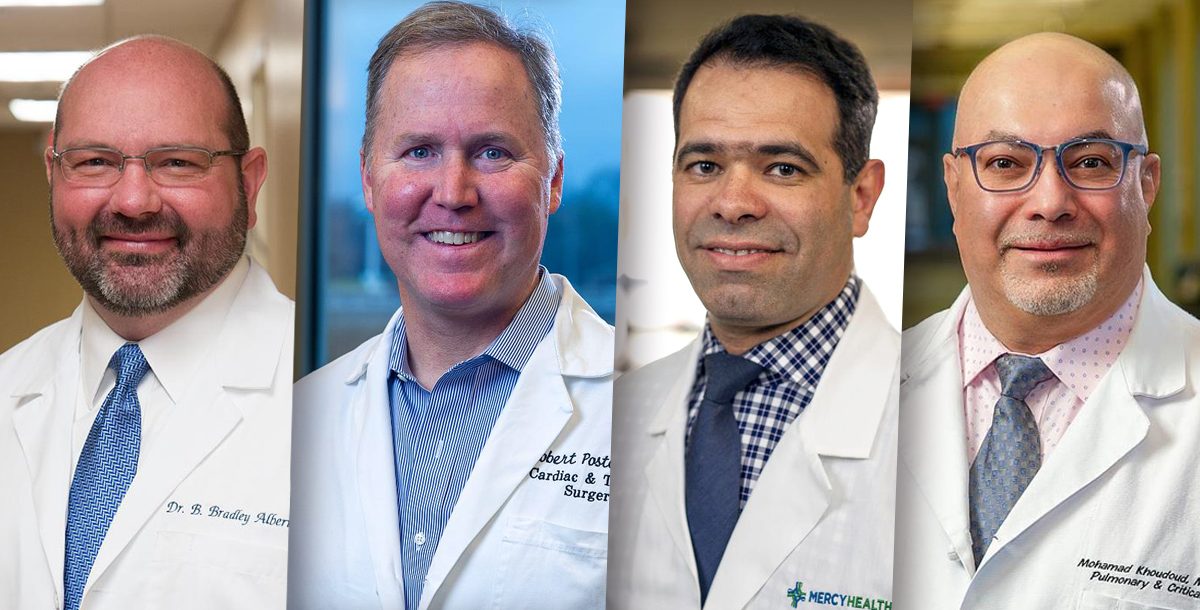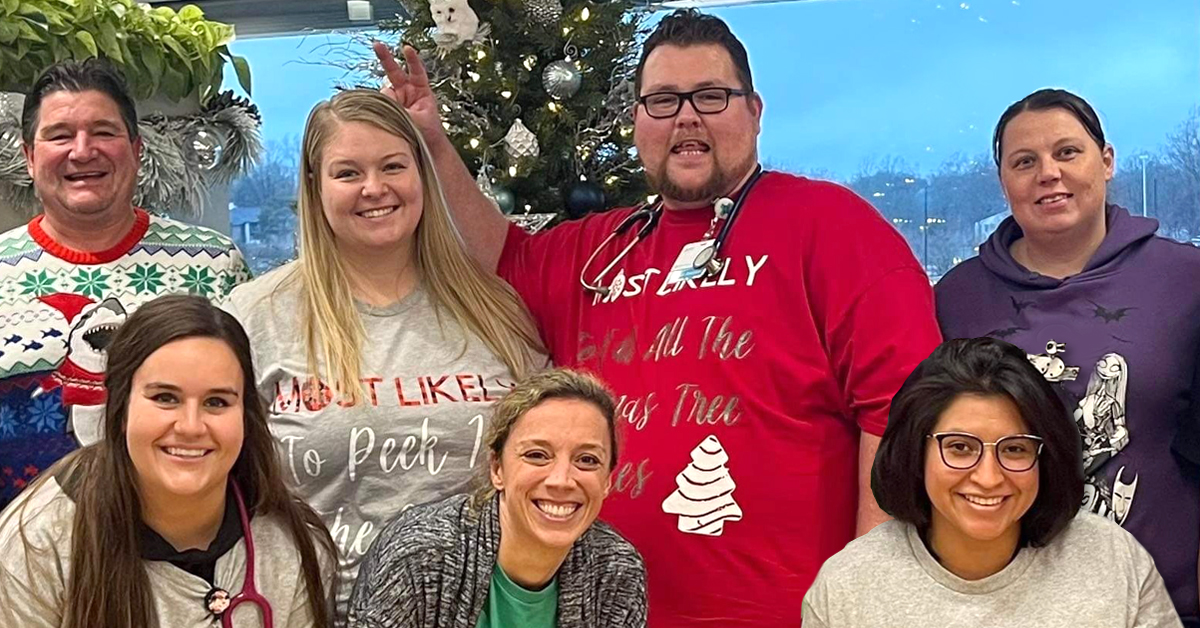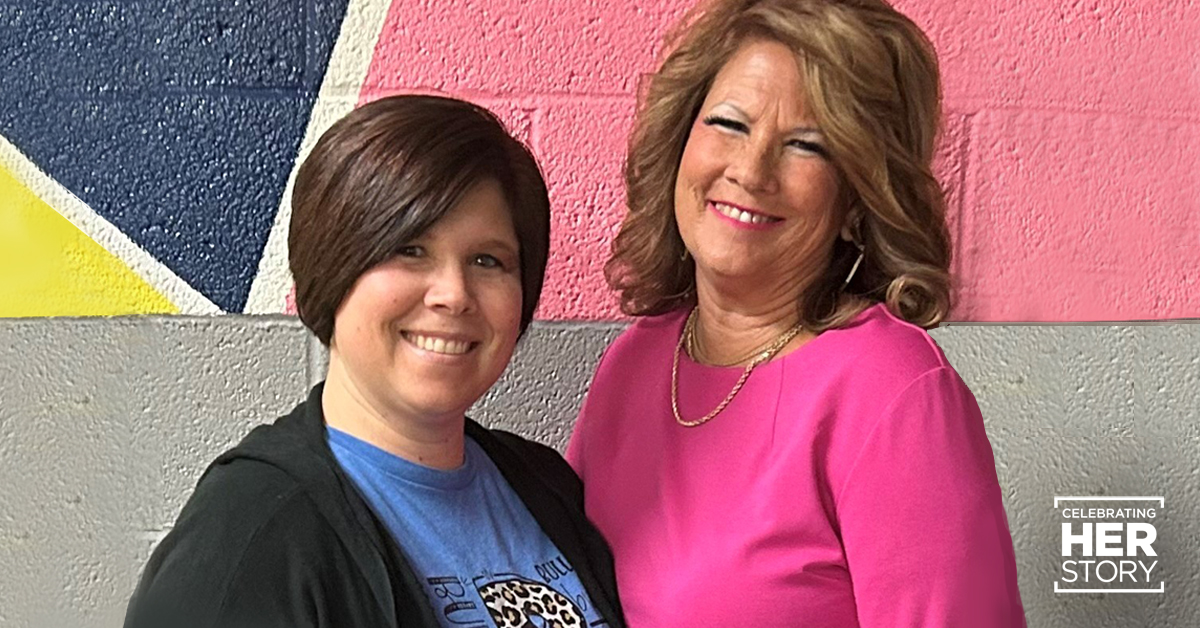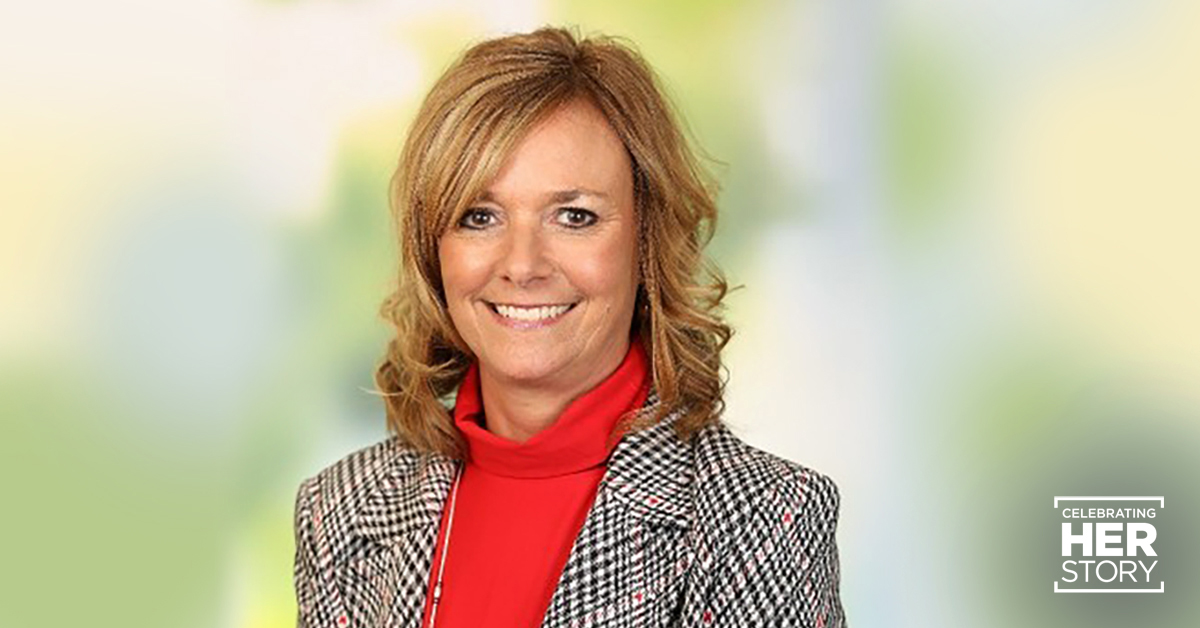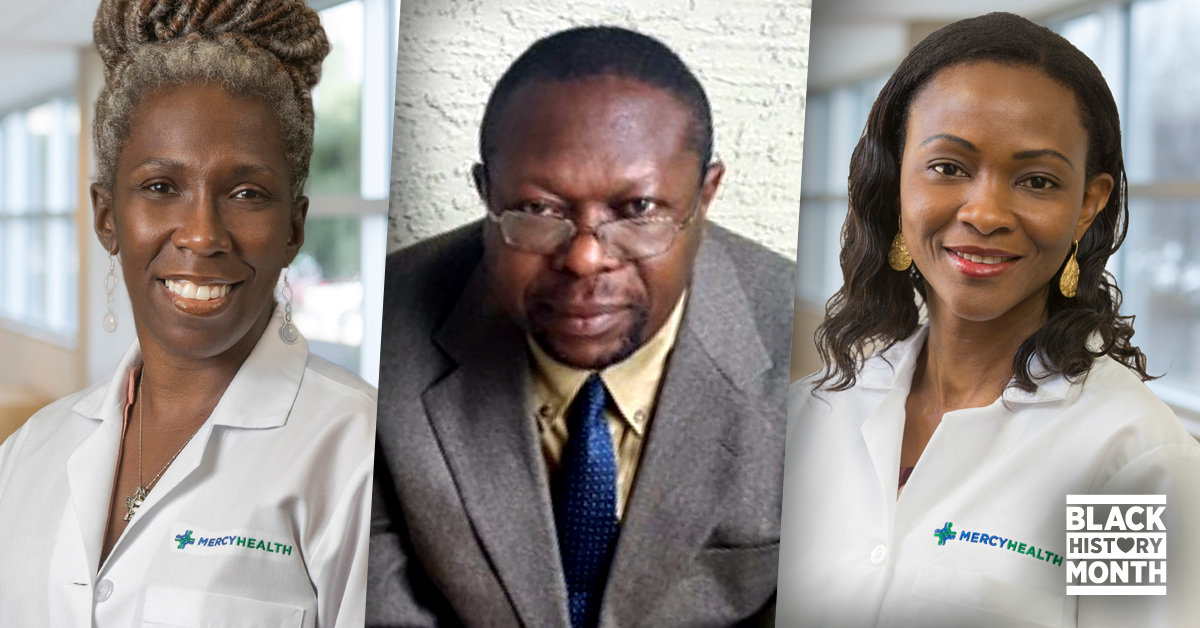Four years ago, Liz Stocker, now 71, had some good news to share with her primary care provider.
“I went to see Dr. Albertson for my normal wellness check and I told him I quit smoking!” Liz shares.
However, Bradley Albertson, DO, (pictured above, far left) knew Liz had been a lifelong smoker, so he asked her to still get a CT scan done to make sure everything was OK.
“Lo and behold, it showed stuff on the screen,” Liz recalls.
Based on what her care team saw, Liz’s doctors decided to monitor her.
“For the first three years, I had scans every six months. Then I went for a scan after a year’s time. That’s when we saw changes,” Liz explains. “Had Dr. Albertson not strongly recommended that they do this screening, I would not know that I had developed the potential for cancer. I would not know even now that this thing had gone to cancer and had to be dealt with. In many ways, he’s added many years to my life.”
Following the changes spotted in her scan, Liz underwent a guided bronchoscopy. A sample taken from her lung during the procedure confirmed that she had in fact developed lung cancer.
“My pulmonologist, Dr. Khoudoud, referred me to a surgeon, Dr. Poston, and all my appointments were set up in one day,” Liz says.
She adds that Mohamad Adul-Khoudoud (pictured above, far right) is a take charge kind of guy.
“He grabbed hold of this, and he just ran. They got on it rapidly and got it resolved quickly,” Liz shares, who had a lobectomy on Aug. 1, 2022. Robert Poston, MD, (pictured above, left center) was her surgeon.
“He knows his stuff and has a teacher’s heart,” Liz says. “He walked me through everything, so I knew what to expect. I had an epidural for three days to stave off the pain in my chest so all my energy could turn to healing.”
Because Liz’s surgery was robotic-assisted and minimally invasive, she spent only three days in the hospital. During that time, she noted how well her doctors, nurses and the hospital team coordinated her care.
“They work well together, and I had superior care from the aides to the nurses to the physicians all the way through,” she shares. “They all pitched in and pulled at the same time and were supportive, understanding and pushed me enough without asking me to do things that I was uncomfortable with. Compassion was evident with all of them and that’s a big deal. Complacency is hard to guard against and there’s no sign of complacency with any of these doctors. That’s a biggie. The fact that everyone was pulling together for my benefit was evident.”
Post-surgery, Liz is feeling good and working on building up her strength again.
“I have to keep reminding myself that I am several weeks post op and my demand for energy has to be put toward healing,” she says. “While I still tire and have a degree of needing to catch my breath, I catch it faster than I did before as I am regaining more and more lung function. Dr. Albertson listened to my lungs and said they were excellent. Those supportive words meant the world to me.”
Because Liz’s cancer was caught early and hadn’t spread, she did not need to go through chemotherapy or radiation treatment. She’s back to being monitored every six months for the next three years and then once every two years.
“Dr. Claudino, my oncologist, told me that I am fortunate to be one of those people who’s been able to get this looked at and dealt with early,” Liz shares. (Wederson Claudino, MD, is pictured above, right center.)
She now encourages others to have a lung screening done right away if their doctor recommends it.
“Because the screenings are not invasive and don’t hurt, they are a quick and easy test to go through. Go in and take a look. I had no reason to suspect there was anything there and that’s the problem with so many of these kinds of things. They are small and slow-growing and all of sudden, you’ve got a big problem on your hands. If I hadn’t checked, this could have gotten me in a couple of years.”
If you are 50 or older, have a history of smoking over 20 years and if you currently smoke or quit within the last 15 years, you may benefit from an annual lung cancer screening. Using a CT scan, a radiologist can detect lung nodules that may be cancerous. Detecting lung cancer early can provide better health outcomes for patients. Talk with your primary care provider about lung cancer screening.
Also, if you currently smoke, we offer smoking cessation classes that can help you break the habit and lower your risk for developing lung cancer.
Learn more about lung cancer as well as the cancer care services we offer at Mercy Health.


